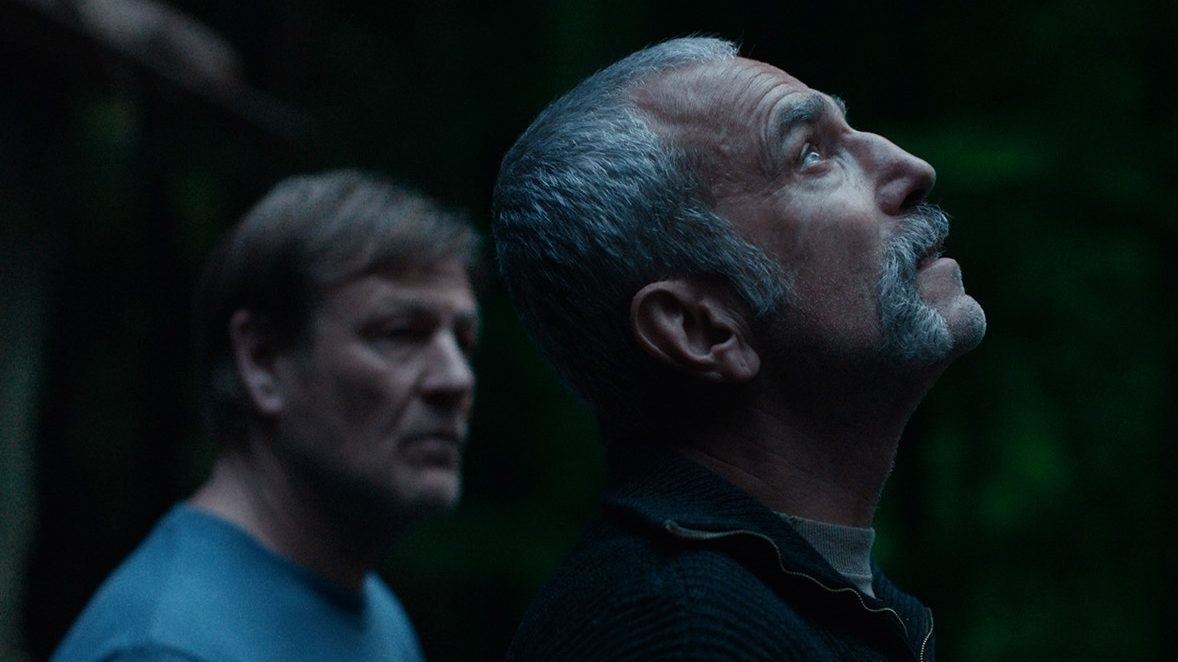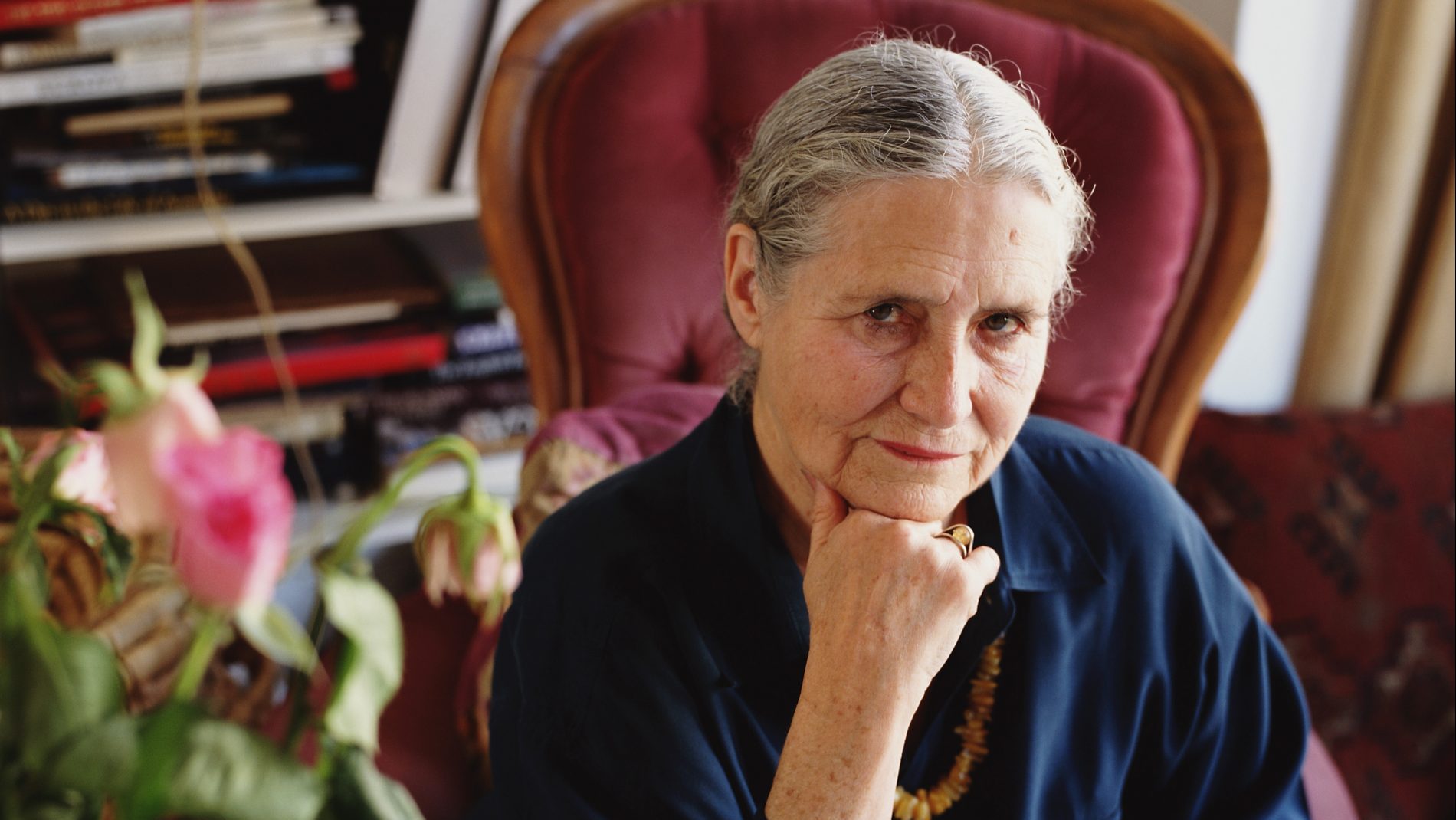PICK OF THE WEEK
Anemone (Selected cinemas)
Speeding on a motorbike deep into a forest somewhere in north England, Jem (Sean Bean) goes in search of his brother Ray (Daniel Day-Lewis). In so doing, he acts on behalf of the movie audience, longing for the return of the only man to have won the Oscar for best actor three times – who officially retired eight years ago after Paul Thomas Anderson’s The Phantom Thread.
Ray is a former soldier who has exiled himself after a horrific episode in Northern Ireland 20 years before – the nature of which is only explained late in the film, in one of Day-Lewis’s mesmerising soliloquies. While he has lived the frugal, off-grid life of a warrior-hermit, the deeply religious Jem has married his former lover Nessa (Samantha Morton, superb as always) and raised Ray’s son Brian (Samuel Bottomley).
Now, however, the son, who has followed his father and uncle into the military, is in trouble and needs Ray: Brian’s knuckles are bruised and bleeding, like the stigmata of a family curse.
In this respect, art does not mirror life. Anemone is directed by Ronan Day-Lewis, a 27-year-old fine artist whose expressionist aesthetic is vividly captured by cinematographer Ben Fordesman. In interviews, Day-Lewis Sr, now 68, has been effusive with pride about his son, and the pleasure of collaborating with him on an artistic project (they co-wrote the script).
Some critics have been unable to look beyond the director’s surname and the predictable “nepo baby” charge to recognise that this is a seriously accomplished debut. It presents itself initially as a work of social realism, addressing the abrasive dynamics within families, the specific relationship between fathers and sons (Ray and Jem reminisce about their own childhood), and the painful legacy of the Troubles.
Inside the forest, however, Anemone assumes a mythic dimension, as Ray’s pulverised psyche is stripped bare and ghostly apparitions manifest themselves: a giant fish, a luminous angelic figure, a strange creature with an elongated neck. At such moments of transcendence, the movie owes more to David Lynch and Joanna Hogg than to Ken Loach and Andrea Arnold.
It takes its title from a flower that closes its petals when the storm approaches, much as Ray has turned in on himself and away from the world. In his gruff solitude, he has something in common with Daniel Plainview in There Will Be Blood (2007); in truth, however, he is a much more frangible figure, stoic only to the extent that he fears what may happen if he allows love to flow through his veins after so long. A fine addition to one of the greatest bodies of work in cinema.
Suggested Reading


This Othello is a tour de force
STREAMING
Death by Lightning (Netflix)
“Assassination can no more be guarded against than death by lightning”: so wrote James Garfield, 20th US president, who held the office for only 200 days in 1881; murdered at the railroad station in Washington DC by the delusional Charles J Guiteau.
Based on Candice Millard’s excellent book, Destiny of the Republic (2011), Mike Makowsky’s four-part mini-series is a dramatic gem, marshalling the full intensity of this historic moment to explore the fault-lines of America in the aftermath of the civil war, the prevalence of corruption, and the nature of leadership.
Garfield (Michael Shannon), a long-serving Ohio congressman, speaks at the 1880 Republican National Convention to champion the presidential candidacy of Treasury secretary John Sherman. So impressive is his oratory, however, that, on the 36th ballot the deadlocked gathering chooses Garfield himself as the party’s nominee.
To pacify the mighty New York delegation, which, through the ports, controls 75 per cent of federal revenue, he chooses the bibulous Chester Arthur (Nick Offerman) as his running mate. Arthur is too busy carousing to add much to the ticket. “Music! Fighting! Sausages!” he bellows. True power in New York is wielded by the scheming senator Roscoe Conkling (Shea Whigham) who despises the new president’s crackdown on patronage and grift as impractical priggishness.
Matthew Macfadyen is terrific as Guiteau, a mentally unstable drifter who idolises Garfield and longs for access to the inner circle. His performance is a study in loud desperation – he is sufficiently deranged to believe that he will be appointed to a consulship – and the moment when secretary of state James Blaine (Bradley Whitford, naturally) finally loses patience with this grubby chancer crackles with energy.
The role played in Garfield’s presidency by Frederick Douglass (Vondie Curtis-Hall), appointed recorder of deeds for the District of Columbia, and Blanche Bruce (Barry Shabaka Henley), register of the Treasury and the first African American person whose signature appeared on US paper currency, is a pointed reminder that the history of civil rights in the republic has been far from linear. The series ends on the eve of the Jim Crow era.
Death by Lightning is full of contemporary resonance, released only weeks before the 250th anniversary year of US independence; an unexpectedly poignant parable of the promise of America, of what has been lost, of what might be again.
FILM
Die My Love (Selected cinemas)
Eight years since she drew from Joaquin Phoenix one of his greatest performances as the traumatised gun for hire, Joe, in You Were Never Really Here, Lynne Ramsay returns with a movie no less harrowing or compelling.
Jennifer Lawrence and Robert Pattison are sensational as Grace and Jackson, migrating from New York City to rural Montana where they move into the ramshackle house that previously belonged to his Uncle Frank. Grace dreams of being a writer, Jackson of cutting a record. They play music loud, have lots of sex, imagine themselves as rock’n’roll outlaws in the style, say, of Sailor Ripley and Lula Fortune in Wild at Heart (1990).
Then Grace becomes pregnant and everything changes. She is seen prowling through the undergrowth like a wild cat, but the truth is that her feral performance reflects a sense of captivity. When her son, Harry, is born, she and Jackson drift apart.
Disgusted by his declining sexual interest in her – “you impotent little shit!” – Grace is scarcely surprised when she finds condoms in his glove compartment. Meanwhile, she fantasises about a neighbour on a bike (LaKeith Stanfield), dreaming of erotic encounters with him that may or may not be a figment of her imagination.
The casting of Sissy Spacek as Jackson’s mother Pam inevitably invites comparison with Terrence Malick’s Badlands (1973), in which she starred with Martin Sheen as a couple on a killing spree. She recognises the wildness in Grace and fears for her son, who is amiable but weak.
Based on a 2012 novel by the Argentinian writer Ariana Harwicz, Die My Love has been widely described as a movie about post-partum depression. But this is like saying that The Iliad is a story about infidelity. Pam tells Grace that “everyone goes a little loopy in the first year”. A woman at a party says to her that nobody talks about the phenomenon – to which Grace replies: “It’s all anyone talks about”. Later, a therapist offers the same diagnosis, and she tries to explain that her relationship with her child is fine: “It’s everything else that’s fucked”.
Grace achieves a communion of sorts with Jackson’s father, Henry (Nick Nolte), who is suffering from dementia. And she undoubtedly loves her husband (listen out for the touching use of David Bowie’s Kooks and John Prine’s classic country duet with Iris DeMent, In Spite of Ourselves).
Admirably, however, Lawrence and Ramsay foreswear every predictable cinematic trope that might present Grace as a conventional victim or even straightforwardly likeable. When she shoots Jackson’s dog, you realise just how far director and actor are willing to go to achieve this extraordinary portrait of a human being in deep crisis. It seems entirely apt that Ramsay herself sings Love Will Tear Us Apart over the closing credits.
BOOK
The Eleventh Hour by Salman Rushdie (Jonathan Cape, Vintage)
In The Musician of Kahani, one of five stories in Salman Rushdie’s first work of fiction since he was repeatedly stabbed at a literary event in Chautauqua, New York in August 2022, there is a cameo role for Saleem Sinai (“Saleem Big-Nose”), the principal character in Midnight’s Children (1981): “he isn’t real but he’s here too.”
Another symmetry: Chandni Contractor, the musical prodigy at the heart of the story, is born as the 20th century ends; “at midnight, the approved hour for miraculous births in our part of the world”. This recalls the arrival of Saleem and a thousand other magically gifted children in the first hour of August 15, 1947, at the precise moment that India achieves independence.
More than 40 years since Midnight’s Children, which won not only the Booker Prize but, in 1993, the Booker of Bookers, the publication of The Eleventh Hour is itself doubly miraculous. First, as Rushdie recounted in Knife (2024), his extraordinary account of the attack and its aftermath, it was far from certain that he would survive his catastrophic injuries.
Second, it is no less remarkable that, after this horror, he has returned with such brio, mischief and majesty to the creative life. True, In the South, a charming portrait of two elderly neighbours facing mortality in Chennai, was first published in the New Yorker in 2009; the final story, The Old Man in the Piazza, a meditation on language itself, appeared in the same magazine in 2020.
But the three new tales are lengthy, burst with life and revel in the magic realist aesthetic that Rushdie patented and globalised. Late is a campus novella about the ghost of English academic SM Arthur – a composite of EM Forster and Alan Turing – “a broken entity trapped in a kind of prison” who can only be seen by Indian student Rosa. Oklahoma is a homage to Kafka, a writer of great importance to Rushdie.
As always, his references, influences and sources are joyously eclectic: from Justin Bieber and The Wizard of Oz via Italo Calvino and Jorge Luis Borges to Pather Panchali and Alice in Wonderland.
The Eleventh Hour has been widely interpreted as the 78-year-old’s valedictory work. Quite the opposite, I would say.




